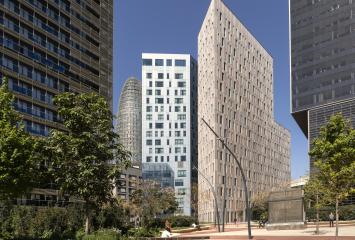The road to sustainable mobility
One of the biggest environmental challenges we face today lies in mobility. We are now moving more people and goods further, faster and more efficiently than ever before, and that comes at a price: the transport sector is currently responsible for a quarter of CO₂ emissions in the EU.
The solution to this problem is clear: we must turn towards sustainable mobility. But what really is sustainable mobility? At first glance, it may seem that this only implies a way of transporting people and goods that minimizes carbon emissions and environmental impact, but it goes beyond that. It's also about making it (transportation) accessible and affordable for everyone. To this end, a number of innovative mobility trends have emerged that tick all these boxes and could help achieve global sustainability goals.
Innovations in mobility
First, we have shared mobility, in which people do not own the means of transport, but rather pay for their use. This can include various modes of transportation, such as cars, scooters, and electric bicycles. On the other hand, we have public transport, which is one of the most efficient ways to reduce emissions and vehicle congestion. Finally, we have the so-called "soft mobility" or "active mobility" which encompasses all the ways of moving by your own means (walking, bicycles or roller skates).
Many governments have already implemented these new forms of mobility in their cities, as well as pedestrianization, which is based on eliminating or restricting vehicle access to a street or public area for the exclusive or prioritized use of pedestrians. But governments are not the only ones who can lead this transition: the private sector and companies also have a lot to contribute.
Offices that promote sustainable mobility
When it comes to real estate, there are three determining factors: location, location and location. That is why Colonial has an outstanding presence in the prime areas of the Barcelona and Madrid markets, in order to facilitate good communication with urban centers, airports, train stations and public transport.
Most of our assets located in Madrid and Barcelona have services that promote sustainable transport for users, such as parking spaces enabled for bicycles or scooters, as well as electric charging stations. In this way, CO₂ emissions are significantly reduced.
A study by the human resources company Michael Page on commuting habits found that less than a third of professionals in Spain use public transport to go to work, most prefer private transport. Therefore, from the real estate sector we have a duty to promote and facilitate sustainable mobility to offices to reduce pollution, congestion and resource consumption, and increase the well-being of building users.

